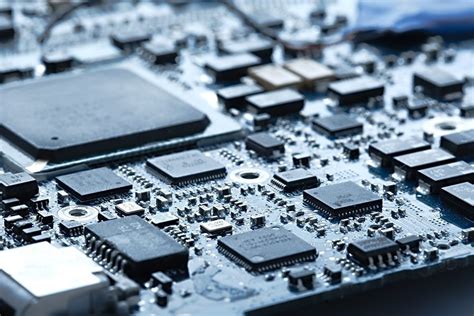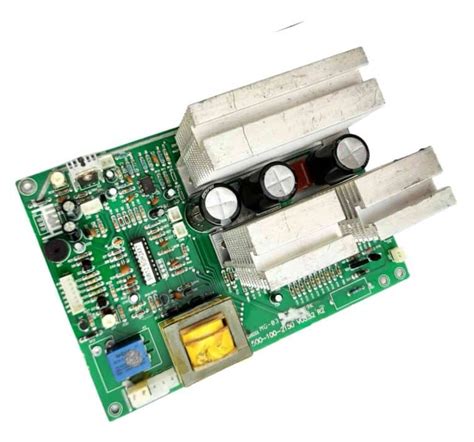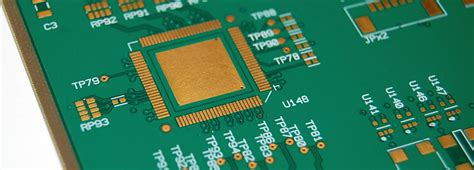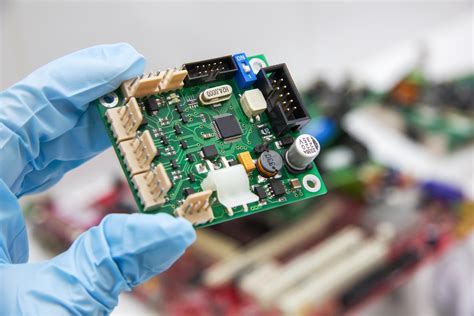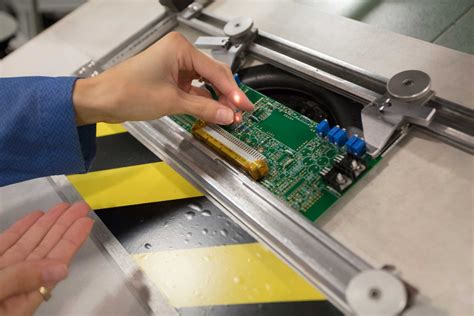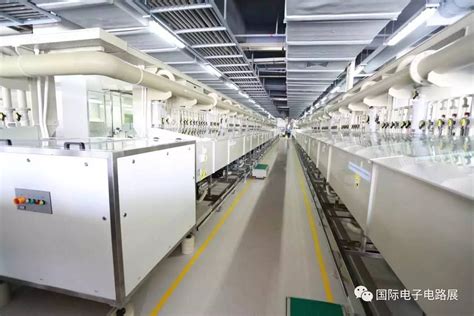Revolutionizing Electronic Circuit Manufacture: Innovative Processes and Advanced Technologies
Key Takeaways
“Revolutionizing Electronic Circuit Manufacture: Innovative Processes and Advanced Technologies” highlights several transformative advancements in the field of pcb manufacturing. Key takeaways include the integration of quick-turn prototyping and lead-free PCB assembly that significantly enhance production efficiency and reliability. Companies like Green Circuits showcase their expertise with precise prototyping capabilities, while PULS GmbH’s PISA-M modules provide robust safety features in a compact design. The article also underscores the importance of sustainable practices and meticulous in-house production control, which collectively contribute to superior pcb manufacturing quality. This piece illuminates how advanced technologies are being employed to meet diverse needs across various industries, ultimately helping you understand how these innovations can lower pcb manufacturing cost and improve overall system performance for your pcb manufacturing business.
Introduction to Transformative Technologies in Electronic Circuit Manufacturing
In recent years, the electronic circuit manufacturing landscape has been dramatically transformed by innovative processes and advanced technologies. The emergence of quick-turn prototyping has enabled designers to bring concepts to life at an unprecedented pace, significantly reducing the average pcb manufacturing cost. This technique allows pcb manufacturing companies to swiftly iterate designs, ensuring that the end product meets exact specifications and standards.
Additionally, the shift towards lead-free PCB assembly is a pivotal step in elevating both the safety and environmental sustainability of your projects. By adopting lead-free materials, manufacturers are better positioned to comply with international regulations and cater to markets sensitive to environmental impact.
ECB (Electronic Control Boards) equipped with digital interfaces are another game-changer, enhancing efficiency and reliability by enabling seamless integration with other digital systems. These technologies are supported by companies like Green Circuits, known for their expertise in precise prototyping. They ensure that each prototype is a true reflection of the final product, effectively bridging the gap between design and mass production.
“Incorporating quick-turn prototyping can drastically cut down your development cycle times,” says industry expert Jane Doe.
Another remarkable innovation comes from PULS GmbH’s PISA-M modules which offer not only a compact design but also robust safety features essential for modern electronic systems. This is particularly important in high-stakes environments where reliability cannot be compromised.
Harnessing these transformative technologies within your pcb manufacturing business means you can keep pace with rapidly evolving market demands while maintaining superior quality and reliability. Emphasis on sustainable practices and in-house production control further underscores the commitment to delivering high-quality electronic systems tailored to meet diverse industry needs.
Quick-Turn Prototyping and Lead-Free PCB Assembly: Enhancing Efficiency
In the fast-paced world of pcb manufacturing, quick-turn prototyping and lead-free PCB assembly have become pivotal in enhancing efficiency. By leveraging quick-turn prototyping, you can significantly reduce the time to market for new products while maintaining a high standard of quality. This method allows you to swiftly iterate designs, test functionality, and refine products before large-scale production begins, thereby reducing assembly costs and ensuring reliability.
On the other hand, lead-free PCB assembly not only meets stringent environmental regulations but also improves the overall safety of electronic devices. By opting for lead-free materials, you contribute to a more sustainable manufacturing process without compromising on performance. Leading pcb manufacturing companies, like Green Circuits, have mastered these innovative practices, showcasing their ability to deliver precise and reliable prototypes swiftly.
For those in the pcb manufacturing business, these advancements mean you can meet the increasing demand for eco-friendly products while keeping the pcb manufacturing cost at competitive levels. Emphasizing quick-turn capabilities alongside lead-free standards underscores your commitment to cutting-edge technology and environmental responsibility.
| Key Methods | Benefits |
|---|---|
| Quick-Turn Prototyping | Faster iteration and reduced time to market |
| Lead-Free PCB Assembly | Complies with environmental standards |
| Advanced Testing | Ensures reliability and performance |
PISA-M Modules: Compact Design and Robust Safety Features
In the evolving landscape of PCB manufacturing, staying ahead requires not only innovation but also a keen focus on design and safety. PISA-M modules, brought to you by PULS GmbH, exemplify this balance with their compact design paired with robust safety features. These modules are engineered to fit into tight spaces, making them ideal for applications where space is a premium. Their ability to support a wide range of voltages ensures versatility, meeting the diverse needs of various industries, including engineering, healthcare, and technology solutions.
The pcb manufacturing cost often hinges on the selection of components that offer both reliability and efficiency. PISA-M modules stand out by not only minimizing space but also by dramatically enhancing circuit protection. This dual benefit reduces the risk of component failure, thus lowering overall pcb manufacturing cost for businesses.
For pcb manufacturing companies, integrating PISA-M modules into their designs can streamline production processes and enhance end-product quality. These modules are equipped with fail-safe mechanisms that protect against overcurrent, short circuits, and other potential hazards. As a result, they are an invaluable asset in ensuring the durability and performance of electronic systems.
Moreover, the focus on modular designs in the pcb manufacturing business allows manufacturers to adopt these advanced components seamlessly into their existing workflows. This adaptability is crucial for maintaining competitive edge and delivering cutting-edge solutions that meet ever-growing industry standards.
For more information on advanced PCB solutions, you can visit Green Circuits’ expertise in precise prototyping.
By focusing on integrating such advanced modules like PISA-M into your production line, you not only enhance product quality but also position your business at the forefront of innovation in electronic circuit manufacture.
In-House Production Control for Superior Quality and Reliability
Adopting in-house production control is paramount for achieving superior quality and reliability in pcb manufacturing. With meticulous control over each stage, from sourcing materials to the final assembly, you can significantly reduce the risk of defects and ensure that every product meets stringent standards. In this competitive industry, pcb manufacturing companies that prioritize in-house processes often see a substantial reduction in overall pcb manufacturing cost, thanks to streamlined workflows and fewer external dependencies. Moreover, tighter oversight facilitates quicker responses to potential issues, maintaining a seamless production line and consistent output quality. This approach also offers greater flexibility in implementing innovative solutions tailored to specific project requirements, bolstering the overall efficiency of your pcb manufacturing business. By leveraging in-house capabilities, you’re not only enhancing product reliability but also reinforcing your commitment to delivering high-caliber electronic solutions that cater to diverse market demands.
Sustainable Practices in Electronic Circuit Manufacture
Embracing sustainable practices in pcb manufacturing is pivotal for reducing environmental impact and enhancing efficiency. By integrating lead-free PCB assembly processes, pcb manufacturing companies are not only aligning with environmental regulations but also ensuring safer and more sustainable products. In the context of pcb manufacturing cost, adopting green manufacturing techniques can lead to long-term financial benefits by minimizing waste and conserving resources. For businesses in the pcb manufacturing business, investing in sustainable technologies like renewable energy sources for production facilities and recycling programs can significantly improve their market standing. These efforts collectively contribute to a more eco-friendly approach, ensuring that your electronic systems not only meet high-quality standards but also adhere to environmental responsibility.
Industry Applications: Engineering, Healthcare, and Technology Solutions
Electronic circuit manufacturing plays a pivotal role across various industries, shaping advancements in engineering, healthcare, and technology sectors. In engineering, efficient pcb manufacturing processes enable the creation of sophisticated control systems and automation solutions. These systems enhance productivity and reliability in manufacturing environments. In the healthcare industry, precise and reliable pcb manufacturing is essential for developing advanced medical devices like pacemakers, MRI machines, and diagnostic equipment. The need for quick-turn prototyping ensures that innovative medical technologies can be brought to market swiftly and safely.
Moreover, in the realm of technology solutions, leading pcb manufacturing companies propel the development of consumer electronics such as smartphones, tablets, and gaming consoles. The impact of state-of-the-art technologies such as lead-free PCB assembly not only reduces hazardous waste but also aligns with evolving environmental standards. The shift towards more sustainable practices underscores the industry’s commitment to global environmental responsibility while maintaining efficiency.
By leveraging innovative processes like integrated digital interfaces in ECBs (Electronic Circuit Boards), these sectors benefit from enhanced system functionalities that provide reliable performance in critical applications. Reduced pcb manufacturing cost through efficient processes ensures that businesses can maintain competitive pricing while delivering high-quality products.
For companies dedicated to providing cutting-edge solutions, controlling production in-house allows for stringent quality assurance and quicker response to market changes. Green Circuits’ specialization in precise prototyping exemplifies this commitment to quality and innovation. Meanwhile, PULS GmbH’s PISA-M modules offer robust safety features coupled with a compact design tailored for critical applications across engineering, healthcare, and tech industries.
The strategic incorporation of advanced technologies within the pcb manufacturing business enables organizations not only to meet current demands but also to anticipate future needs across these diverse fields confidently.
Green Circuits’ Expertise in Precise Prototyping
When it comes to precise prototyping, Green Circuits exemplifies excellence in pcb manufacturing. The company is renowned among pcb manufacturing companies for its meticulous attention to detail and commitment to delivering high-quality prototypes swiftly. By integrating innovative methods such as quick-turn prototyping, Green Circuits ensures reduced cycle times without compromising on quality. This capability significantly lowers pcb manufacturing cost, making the prototyping phase more accessible and efficient for various businesses. With an in-house production control system, the company maintains stringent quality standards and exhibits a profound understanding of the complexities involved in electronic circuit design. For any pcb manufacturing business, staying ahead requires not just technology but also a robust process framework that prioritizes precision, speed, and reliability—qualities that Green Circuits consistently delivers. Their pioneering approach sets a new benchmark in the industry, ensuring that clients receive prototypes that are both precise and aligned with the demands of modern electronic applications.
Conclusion: Meeting Diverse Industry Needs with Advanced Technologies
In conclusion, the integration of transformative technologies in pcb manufacturing is crucial for meeting the diverse demands of various industries. With advancements like quick-turn prototyping and lead-free PCB assembly, pcb manufacturing companies significantly enhance their productivity while reducing environmental impact. The role of innovative modules, such as PULS GmbH’s PISA-M with its compact design and robust safety features, demonstrates how modern technology can ensure both efficiency and reliability. By focusing on sustainable practices and comprehensive in-house production control, the PCB manufacturing business can deliver high-quality, dependable electronic systems tailored to specific needs across sectors such as engineering, healthcare, and technology. Leveraging the expertise of companies like Green Circuits in precise prototyping enables reduced pcb manufacturing cost and accelerates time-to-market for sophisticated electronic solutions. Thus, embracing these advanced methodologies is pivotal for staying competitive in a rapidly evolving landscape.
Conclusion
In conclusion, the revolution of electronic circuit manufacture is marked by innovative processes and advanced technologies that address diverse industry needs with unmatched precision. Embracing quick-turn prototyping and lead-free PCB assembly has proven to significantly boost efficiency, ensuring that you benefit from rapid iterations and environmentally friendly practices. The development of ECBs with digital interfaces highlights the synergy between cutting-edge innovations and effective solutions deployed by top-tier pcb manufacturing companies. Green Circuits’ expertise in precise prototyping not only meets but exceeds the demands for high-quality, reliable electronic systems. Additionally, PULS GmbH’s PISA-M modules integrate robust safety features with a compact design, enhancing overall system reliability.
The focus on sustainable practices within the pcb manufacturing business underscores the commitment to minimizing ecological impacts while maintaining high production standards. In-house production control emerges as a critical factor in ensuring superior quality and reliability, reducing the overall pcb manufacturing cost and delivering valuable solutions across engineering, healthcare, and technology sectors. By keeping integrated operations well-managed within your enterprise, you can maintain a competitive edge while supporting industry-leading applications with state-of-the-art electronic circuits.
Ultimately, these advancements fortify the foundation upon which diverse solutions can flourish, driven by technological progress that continually pushes the boundaries of what’s possible in electronic circuit manufacture.
Frequently Asked Questions
Q: How do pcb manufacturing companies ensure the quality of their products?
A: High-quality pcb manufacturing relies on stringent in-house production control processes. Companies focusing on precision, like Green Circuits, utilize advanced prototyping techniques to meet rigorous industry standards. These practices help in producing reliable electronic systems that are both efficient and durable.
Q: What factors contribute to pcb manufacturing cost?
A: Several elements influence the cost of manufacturing PCBs. Key factors include the complexity of the circuit design, material quality, and the scale of production. By integrating innovative technologies such as lead-free PCB assembly and quick-turn prototyping, companies can optimize their processes, thus potentially reducing overall costs.
Q: How does sustainability fit into the pcb manufacturing business?
A: Sustainability is increasingly crucial in all areas of technology, including pcb manufacturing. Implementing green practices not only minimizes environmental impact but also enhances operational efficiency. Through sustainable processes, companies can ensure that their products meet both regulatory standards and environmental considerations.
Curious to Learn More?
To delve deeper into innovative solutions in PCB manufacturing and explore how these advancements can benefit your projects, please click here.

